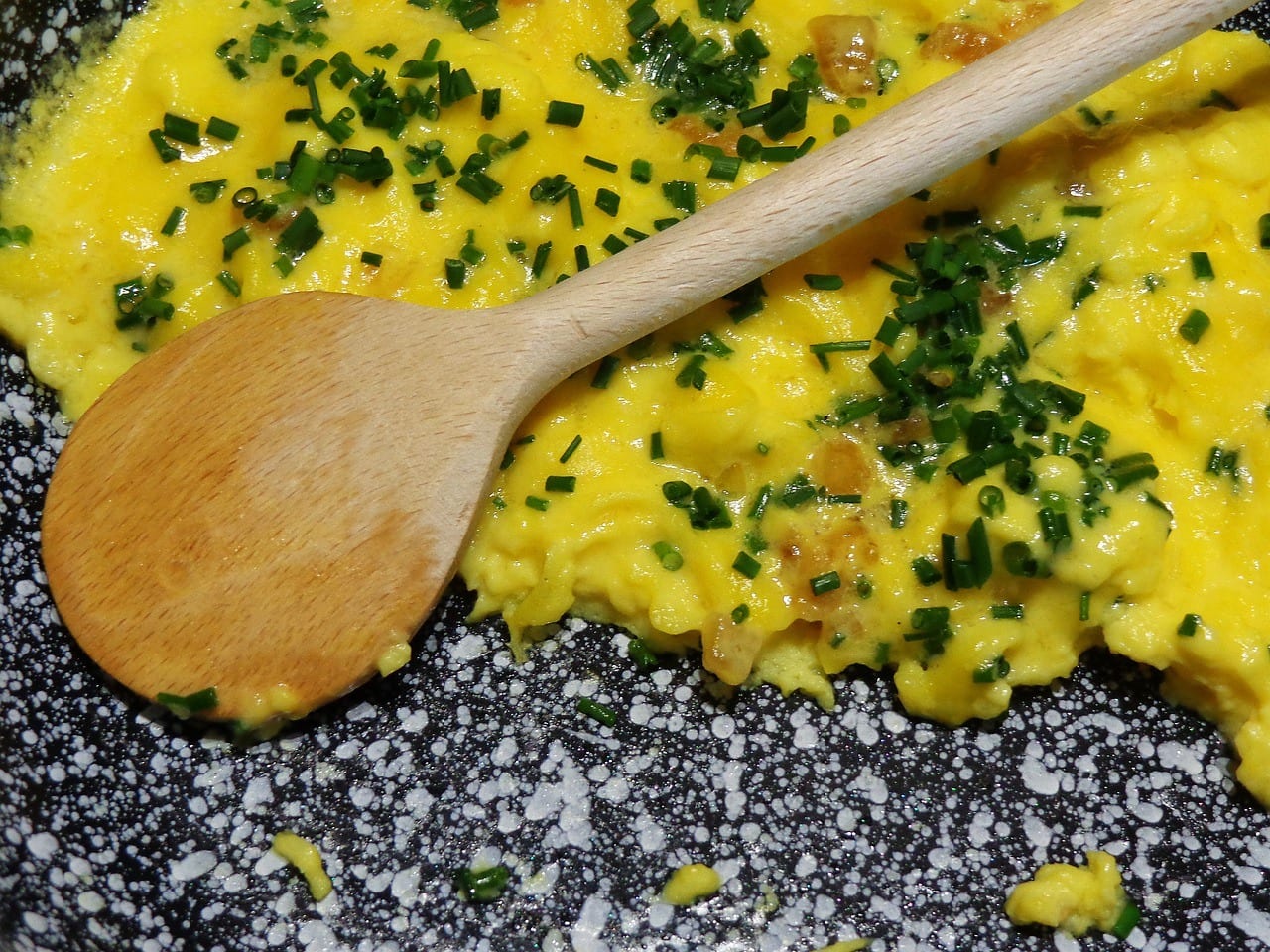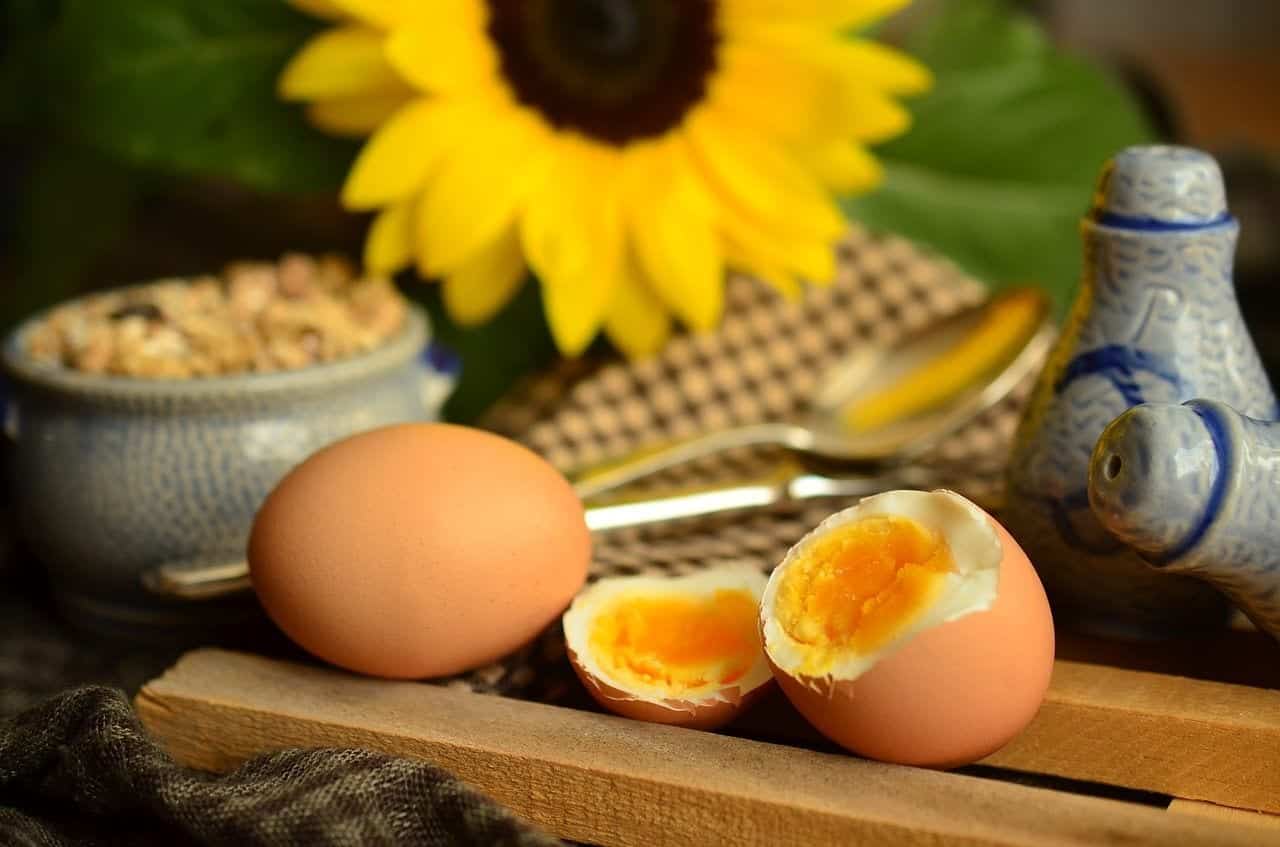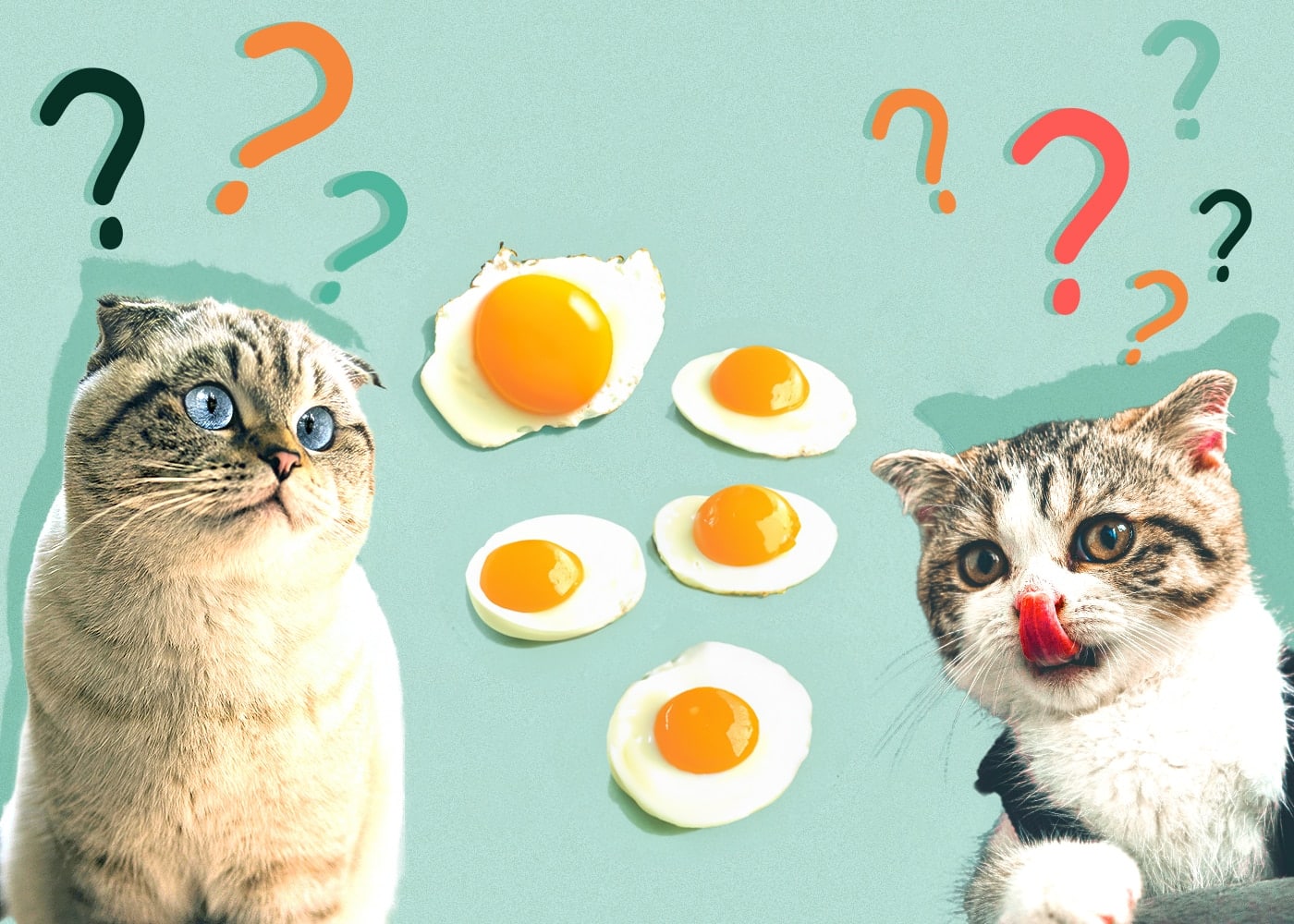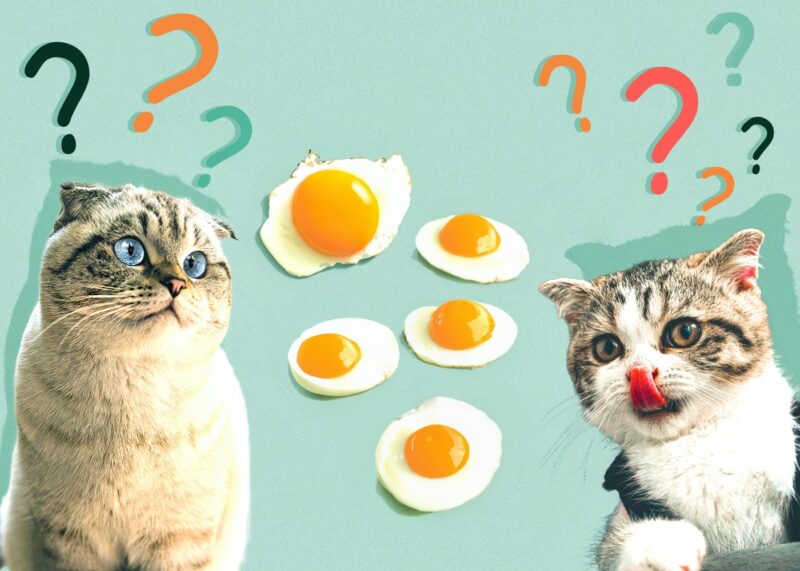We all know that cats love chicken — it’s one of the few things that seems to make them truly happy.
But what about eggs? Will cats eat a cooked egg? More importantly, should they?
We did a little investigating to find the answer because the last thing you want is to have to rush your pet to the ER after giving them the wrong scraps.
However, before you read on, ask yourself what you want the answer to be, because we all know that if your cat learns that it’s okay for them to eat cooked eggs, they’ll have you scrambling up a snack for them every night at 2 a.m.
So, are cooked eggs safe for cats? In a word, yes.
In many words, cooked eggs aren’t just safe for cats, they’re fantastic for them!
The fact is that cooked eggs are much safer for cats than raw eggs. Raw eggs run the risk of giving your cat food poisoning, and they also include a protein that interferes with your cat’s ability to absorb biotin, which is essential for healthy skin and nails.
Also, some cats have egg allergies, and if that’s the case, then you obviously shouldn’t feed them to your pet. Typically, these manifest as irritated skin or ear infections (although vomiting and diarrhea can also sometimes occur), so if you’ve started frying up eggs for your cat every morning, be on the lookout for those symptoms.
So, as long as that egg is fully cooked, feel free to scrape it into your kitty’s bowl.


Do Cooked Eggs Have Any Health Benefits for Cats?
Some animal nutritionists consider eggs to be the perfect protein source for animals, as they’re packed with important amino acids and are easy for cats to digest. They’re a great way to help your furry friend build lean, sinewy muscle.
They’re also packed with important nutrients like vitamins A, B, D, E, and K, as well as iron, zinc, and riboflavin. You won’t find enough vitamins and minerals in an egg to replace a balanced diet, so you’ll need to diversify a bit, but feeding your cat an omelet is a good start.
Eggs are mostly water too, so they’re a great way to hydrate thirsty cats. An over-easy egg will give your kitten moisture, in addition to protein and other nutrients, but more importantly, it’s absolutely adorable to watch a cat lick up the runny yolk.
If you want to be especially crafty, you can even crush up the shell and sprinkle it into wet food. Eggshell powder is full of calcium, as well as magnesium, iron, and zinc. Just bake them for a little while to make them good and soft, and then crush them up in a grinder or smash them with a rolling pin. Then, add a ratio of 1 teaspoon of powder to every 1 pound of meat.
How Do I Convince My Cat to Eat Cooked Eggs?
We’re afraid that you can’t “convince” a cat to do anything. That doesn’t mean that there aren’t strategies you can use to make eggs more enticing to your furry friend, though.
As mentioned, many cats love runny yolks, so cook them sunny-side up and cut them into tiny pieces to give your pet a treat. This is a great way to get sick or dehydrated cats much-needed liquid too.

Many cats like scrambled eggs, but you might find that yours simply likes to bat the eggs around for a little while. That’s fine — they may eventually lick some egg off their paws and decide that the food is all right. Even if they don’t, at least you will have provided your cat with some entertainment.

What’s the Verdict? Can Cats Eat Cooked Eggs?
Assuming they’re cooked well and your cat isn’t allergic to them, cooked eggs are one of the best foods you can feed your cat. They’re packed with protein and other important nutrients, and they can even help your cat take in extra moisture.
Even better, most cats love them, so your feline friend will never have to know that their special new treat is actually a health supplement.






